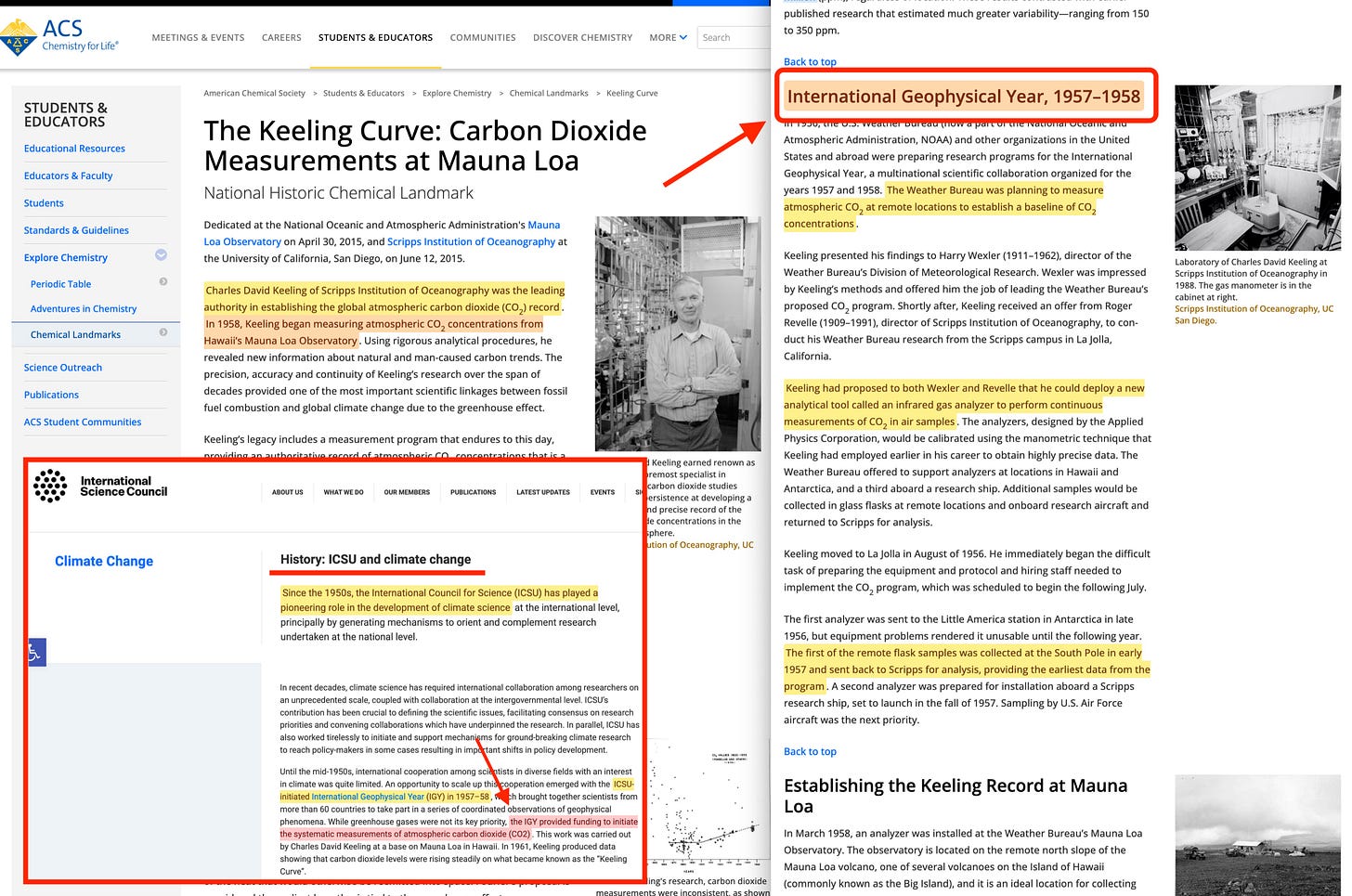The Keeling Curve
The first carbon dioxide measurements took place in 1958. It was officially a low-priority side project of the International Geophysical Year, 1957-58.
And that was yet another ICSU initiative1.
-
But that’s not actually what’s of primary interest here. No, rather, it’s what Keeling contributed to in 1963 which should raise an eyebrow. Here it is -‘Implications of rising carbon dioxide of the atmosphere‘2.
Yes, this was the very first time a ‘consensus’ was reported on carbon dioxide leading to, eventually, the present state of society where outright monetisation of nature iself is inching perilously close.
The report was sponsored by the Conservation Foundation, and it claimed - rather alarmingly - that we’d all die in a lake of fire, should we not curtail carbon dioxide emissions.




